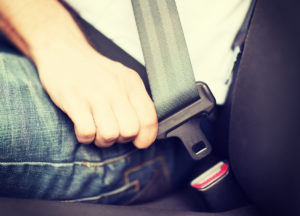
Fall might have just got here, but that means winter is right around the corner. That means driving conditions are going to deteriorate, along with an increase in holiday traffic.
With the roadways congesting more and more at this time of the year, it’s always useful to give drivers a few tips to stay safe while commuting. There are tens of hundreds of tips you can follow for safe driving, but these more common ones will help you avoid a possible accident, other drivers and help protect yourself on the road in all conditions.
Tips:
No Phone!
Using your phone is a distraction. Texting, and even talking, is dangerous to you other drivers. Your reaction time is altered and your eyes are not on the road. A driver might hit the brakes in front of you, and you wouldn’t see it in time. According to a 2015 study from the Department of Transportation, 3,477 people died from cell phone distractions. With so many new apps and features you can use on newer phones, numbers have continued to go up regardless of stricter cell phone usage laws while driving.
Don’t Drink and Drive
This is an obvious tip for keep the roads safe as well. The truth is drinking any amount of alcohol can impair your motor skills, which are needed to drive and focus on the road and other drivers. If you’ve been drinking, asking a sober friend for a ride or calling a cab would be good idea and a life-saving alternative. Fines for drinking and driving in New Jersey can include:
- A fine of $250-$1,000
- Imprisonment
- License suspension
- Mandatory time spent at an Intoxicated Driver Resource Center
- An automobile insurance surcharge
- Installation of an ignition interlock device
Don’t Speed
When driving at a higher than reasonable speed you can alter your reaction time and increase your momentum’s stored energy. This is important because that energy must be dissipated in any type of collision. The faster you are traveling, the more damage will occur to you, your vehicle and possibly others. According to the National Highway Traffic Safety Administration, speeding occurs in 33% of all fatal crashes.
Buckle Up
Wearing a seat belt doubles your chance of survival if a serious accident was to occur. This goes for EVERYONE in the vehicle, not just the driver. In New Jersey, the law requires those in a motor vehicle to be buckled up at all times. According to Centers for Disease Control and Prevention, seat belts can reduce injury and death rates by 50%.
Know Your Signs and Surroundings
Always pay attention to roadwork signs, traffic lights, other types of caution lights or signs (Ex. school crossings or railroad crossings), weather patterns and roadway conditions (Ex. potholes or sharp turns). A good driver should incorporate these things into his or her everyday commute for a safe trip.
Make Sure Your Vehicle is Safe to Drive
Make sure your vehicle’s safety features are up-to-date and well maintained. This includes a vehicle’s lights, airbags, brakes, gas, oil levels and other important fluid levels, along with properly inflated tires and various other features. For example, 11,000 tire-related crashes that happen each year according to the NHTSA. Also, drivers need to pay attention to their dashboard for caution and warning lights, such as temperature warning light, oil pressure warning and brake system alerts.
Practice Defensive Driving
According to the Safe Practices for Motor Vehicle Operations, defensive driving is defined as “driving to save lives, time, and money, in spite of the conditions around you and the actions of others.” In Layman’s terms, don’t incorporate the habits of bad drivers. Good drivers should practice all of the above mentioned tips. New Jersey’s Motor Vehicle Commission also offers courses in defensive driving techniques (taking the course subtracts two points from your license and could reduce insurance rates).
Contact Us
Remember, always stay safe and alert on the roadways. And if you need legal representation, remember to contact the Law Offices of Anthony Carbone today for a free consultation.